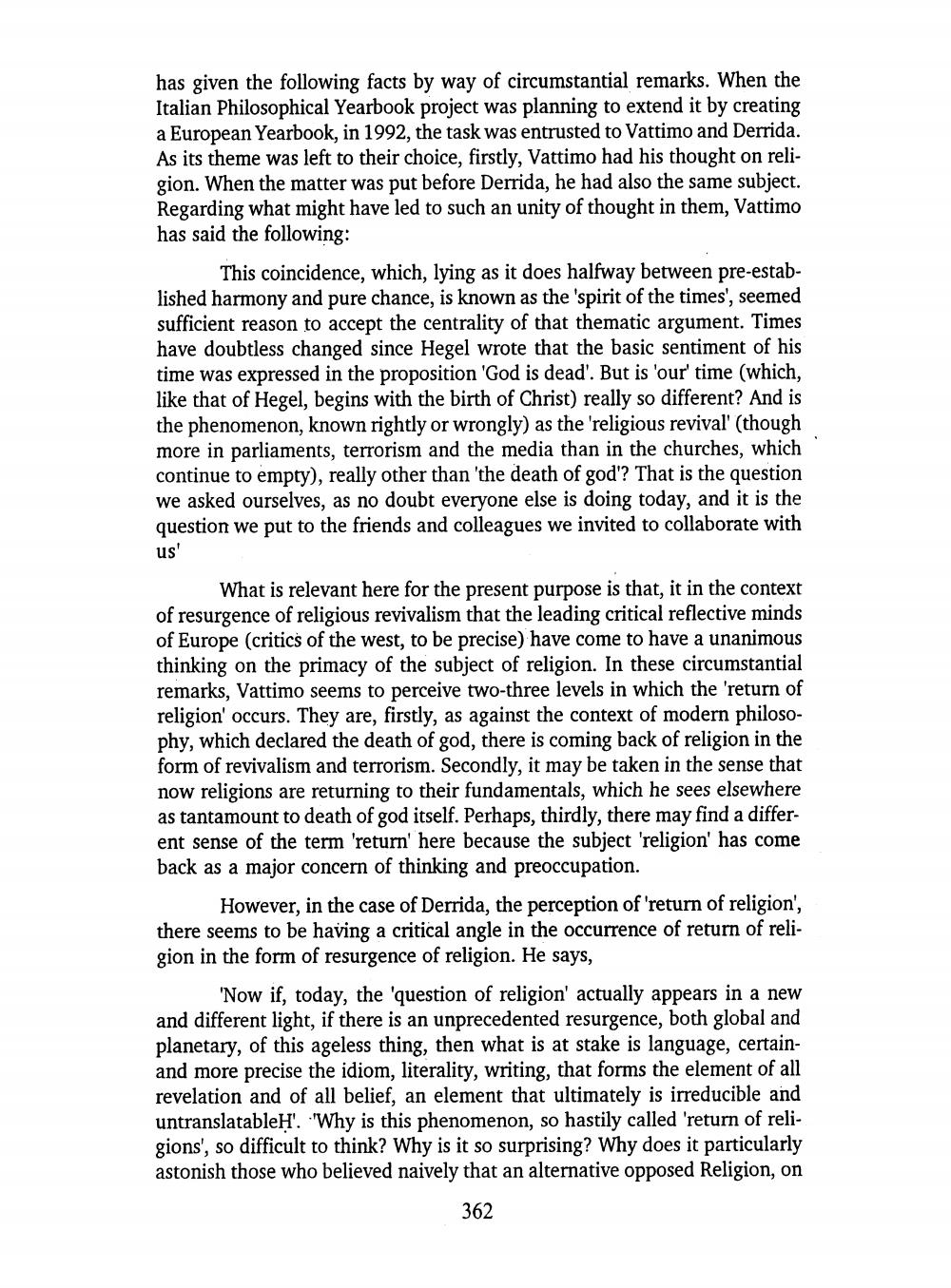________________
has given the following facts by way of circumstantial remarks. When the Italian Philosophical Yearbook project was planning to extend it by creating a European Yearbook, in 1992, the task was entrusted to Vattimo and Derrida. As its theme was left to their choice, firstly, Vattimo had his thought on religion. When the matter was put before Derrida, he had also the same subject. Regarding what might have led to such an unity of thought in them, Vattimo has said the following:
This coincidence, which, lying as it does halfway between pre-established harmony and pure chance, is known as the 'spirit of the times', seemed sufficient reason to accept the centrality of that thematic argument. Times have doubtless changed since Hegel wrote that the basic sentiment of his time was expressed in the proposition 'God is dead'. But is 'our' time (which, like that of Hegel, begins with the birth of Christ) really so different? And is the phenomenon, known rightly or wrongly) as the 'religious revival' (though more in parliaments, terrorism and the media than in the churches, which continue to empty), really other than 'the death of god"? That is the question we asked ourselves, as no doubt everyone else is doing today, and it is the question we put to the friends and colleagues we invited to collaborate with us'
What is relevant here for the present purpose is that, it in the context of resurgence of religious revivalism that the leading critical reflective minds of Europe (critics of the west, to be precise) have come to have a unanimous thinking on the primacy of the subject of religion. In these circumstantial remarks, Vattimo seems to perceive two-three levels in which the 'return of religion' occurs. They are, firstly, as against the context of modern philosophy, which declared the death of god, there is coming back of religion in the form of revivalism and terrorism. Secondly, it may be taken in the sense that now religions are returning to their fundamentals, which he sees elsewhere as tantamount to death of god itself. Perhaps, thirdly, there may find a different sense of the term 'return' here because the subject 'religion' has come back as a major concern of thinking and preoccupation.
However, in the case of Derrida, the perception of 'return of religion', there seems to be having a critical angle in the occurrence of return of religion in the form of resurgence of religion. He says,
'Now if, today, the 'question of religion' actually appears in a new and different light, if there is an unprecedented resurgence, both global and planetary, of this ageless thing, then what is at stake is language, certainand more precise the idiom, literality, writing, that forms the element of all revelation and of all belief, an element that ultimately is irreducible and untranslatableḤ'. "Why is this phenomenon, so hastily called 'return of religions', so difficult to think? Why is it so surprising? Why does it particularly astonish those who believed naively that an alternative opposed Religion, on
362




